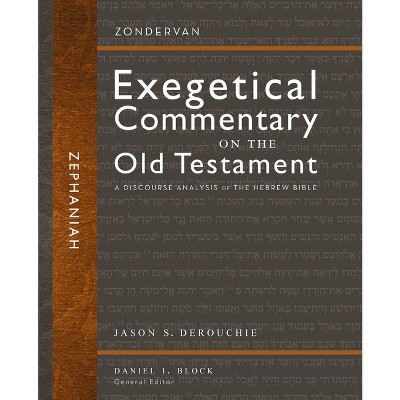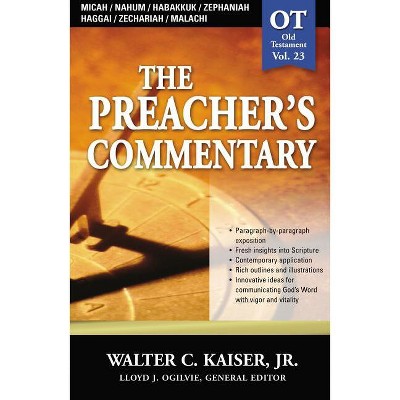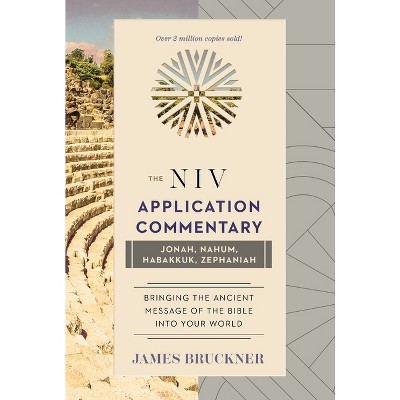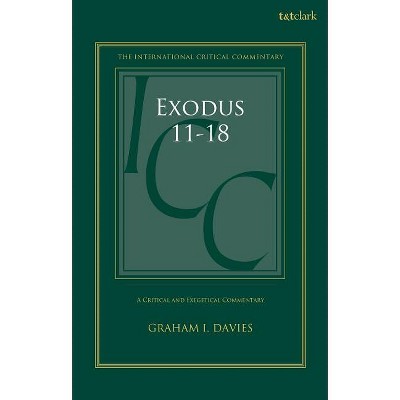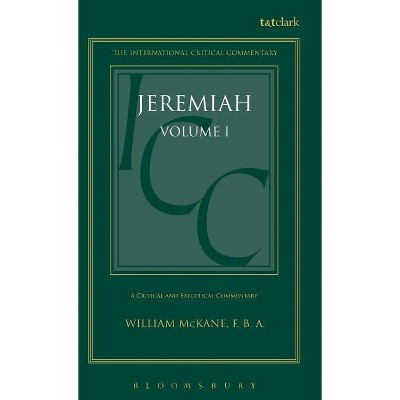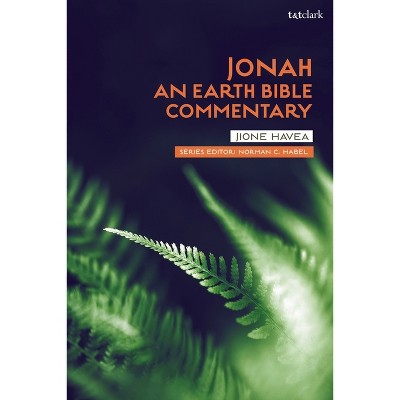Sponsored

Zephaniah - (Earth Bible Commentary) by Nicholas R Werse (Hardcover)
In Stock
Sponsored
About this item
Highlights
- With astute attention to Zephaniah's intertextual relationships with other biblical texts, Nicholas R. Werse explores the implications of Zephaniah as a book in perpetual conversation with other biblical cosmologies and conceptions of the human place in relationship with creation.
- About the Author: Nicholas R. Werse is the Director of the EdD Research and Writing Development Center and Affiliate Faculty in both the Baylor Interdisciplinary Core and the Environmental Humanities program at Baylor University, USA.
- 168 Pages
- Religion + Beliefs, Biblical Commentary
- Series Name: Earth Bible Commentary
Description
About the Book
"With astute attention to Zephaniah's intertextual relationships with other biblical texts, Nicholas R. Werse explores the implications of Zephaniah as a book in perpetual conversation with other biblical cosmologies and conceptions of the human place in relationship with creation. Werse guides readers to critically examine Zephaniah's ancient worldview and subsequent legacy in dialog with the world's modern ecological crises. Werse argues that Zephaniah begins and ends with the land. It begins with the removal of all life from the land and ends with a proclamation returning the exiles to their ancestral home. Along this journey, all three chapters of Zephaniah systematically reverse language and imagery from Gen 1-11 and draw deeply from the language of earlier prophets to depict the 6th century BCE destruction of Jerusalem as nothing short of the unravelling of creation. While remaining suspicious of Zephaniah's distinctively androcentric worldview, Werse traces Zephaniah's rhetorical journey from the deconstruction of creation and the nations, to its proclamations of hope for the future." --Book Synopsis
With astute attention to Zephaniah's intertextual relationships with other biblical texts, Nicholas R. Werse explores the implications of Zephaniah as a book in perpetual conversation with other biblical cosmologies and conceptions of the human place in relationship with creation. Werse guides readers to critically examine Zephaniah's ancient worldview and subsequent legacy in dialog with the world's modern ecological crises.
Werse argues that Zephaniah begins and ends with the land. It begins with the removal of all life from the land and ends with a proclamation returning the exiles to their ancestral home. Along this journey, all three chapters of Zephaniah systematically reverse language and imagery from Gen 1-11 and draw deeply from the language of earlier prophets to depict the 6th century BCE destruction of Jerusalem as nothing short of the unravelling of creation. While remaining suspicious of Zephaniah's distinctively androcentric worldview, Werse traces Zephaniah's rhetorical journey from the deconstruction of creation and the nations, to its proclamations of hope for the future.Review Quotes
"Why Zephaniah? In our modern ecological situation, trauma and hope (or despair) are evolving on a global scale with transgenerational implications. In this commentary, Werse skilfully sets up an ecological dialogue with an anthropocentric biblical work which was formed in contexts of trauma and hope, and draws from it reflections on our situation. Wide-ranging, informative, and thought-provoking." --Peter Trudinger, Independent Scholar, Australia
"This insightful and moving volume invites us to join Zephaniah's transgenerational and transregional dialogue for the sake of Earth. Werse's artful exploration of the book's dialogue with other biblical traditions and his keen modern ecocritical insights constructively frame Zephaniah not as a simplistic "green" text but as a valuable conversation partner in our own work of recognizing the unavoidable disaster facing Earth while also seeking hope for the future." --Julia M. O'Brien, Lancaster Theological Seminary, USAAbout the Author
Nicholas R. Werse is the Director of the EdD Research and Writing Development Center and Affiliate Faculty in both the Baylor Interdisciplinary Core and the Environmental Humanities program at Baylor University, USA.Shipping details
Return details
Trending Non-Fiction






